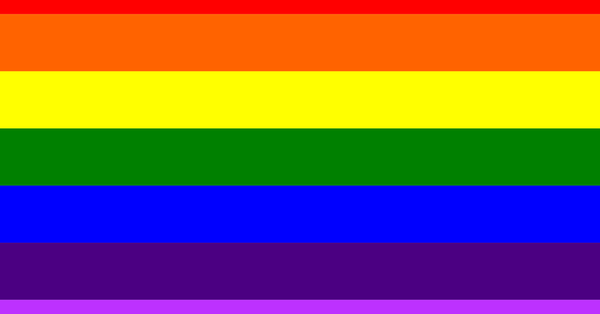
Kathmandu/Pahichan – Thailand is a country that seems rather accepting of diverse gender identities. Indeed, Thailand’s Ministry of Tourism even uses this image to promote tourism in Thailand as a paradise for the LGBTIQ+ community. Indeed this community seems to have much more visibility in Thailand, as shown by the election in 2012 of Yollada “Nok” Suanyot, who became the highest ranking, openly transgender female politician in Thailand.
Gender and sexual diversity is not new in Thailand, as records of sexual and gender behaviors that didn’t match the heterosexual norms can be found as early as the 14th century. Until the 19th century, people’s styles were quite androgynous. Several murals found in temples are depicting homosexuality between men and between women. There are also some oral accounts of homosexuality within the Thai court in the Ayutthaya period (1351 – 1767). This could explain a seemingly cultural acceptance of non-heteronormative sexual and gender behaviors.
Third genders and gender fluidity have been part of many other civilization. The South-Asian Hijras, the Samoan Fa’a’fafine, the Thai Kathoeys or the Burmese Accaults are only a few examples of third gender identities in various cultures.
In the western world however, gender is a binary concept. A common misconception presents the acceptance of non-heteronormative behavior as a western idea. This idea is not only wrong, it is the actual opposite of what historical facts show. In many countries, the criminalization of homosexuality was enforced by British imperial laws. For example, British administrators passed the Criminal Tribes Act in India in 1871, effectively outlawing Hijras, transgender, eunuchs and cross dressers. Former British colonies are still currently more likely to have laws criminalizing homosexuality than other former colonies or other states in general. Almost 70% of British former colonies have such laws.
Thailand, on the other hand, was never colonized. While its neighbors were falling under British and French rule, Thailand managed to remain an independent nation. Seeing that the norms were changing in the neighboring countries regarding gender norms, Thailand started enforcing stricter rules about a more binary division of gender to avoid further action of colonial powers in the country. In order to present Thailand as a “modern” nation and thus avoid an invasion, strict concepts of gender were imposed on the population. The flexible conception of gender was then replaced with a more rigid and binary conception of gender and sexual identity, in an attempt to match western comprehension of gender, and as such, be seen as a “civilized” nation by colonial powers, for whom gender was an either or-.
If gender restrictions have been imposed on those countries by foreign powers, the influence of such conceptions can remain strong to these days, creating a dangerous environment for people not identifying to heteronormative norms.
Thailand’s seemingly accepting culture hides significant discriminations faced by the LGBTIQ+ community. Indeed, their existence is more tolerated than it is accepted, as they are mainly limited to a specific role in society and face a lot of discrimination to this day. In Thailand’s major religion (Theravada Buddhism), being part of a sexual minority is considered a punishment for sins committed in past lives, especially adultery. According to a 2015 study by the Khon Thai Foundation, 56% of Thais aged 15-24 years old think homosexuality is wrong.
There are currently no laws specifically protecting the LGBTIQ+ community from discrimination. Including this community in the anti-discrimination clause of the constitution established in 2007 was suggested but eventually rejected. Transgender people are still not allowed to change their gender identity on their identification papers. Until 2011, transgender people were still considered by the Ministry of Defense as people living with “permanent mental disorder” (Defined by the Ministry of Defense to allow transgender people to avoid mandatory military service).
In their everyday lives, the LGBTIQ+ community faces discrimination at work where many prefer to stay closeted so as to not suffer discrimination. For those who can’t easily hide their identity, they remain mostly relegated to certain sectors: entertainment and sex industry for a large portion of them.
Change will not come from school as sexual and gender identities are not included in the school’s sex education, nor are they mentioned in any other part of the curriculum. Plus, students have to wear the uniform matching their registered sex and are not allowed to wear the one matching their actual identity.
Those misconceptions and stereotypes attached to the LGBTIQ+ community are also spread through the media, as characters in works of fiction mostly appear either under a negative light or as a comic relief based on stereotypes. In the news, stories of harassment or discrimination are hardly ever reported on so as to not interfere with Thailand’s image of an LGBTIQ+ paradise.
While in the traditional western culture, third genders don’t have any place as their existence itself is questioned, they are tolerated in Thailand, as long as they stay within the social space that is assigned to them, a space that is rather narrow and usually only limited to the entertainment or the sex industry. If Thailand is an accepting place compared to other countries in the world, including its neighbors, it still seems far fetched to refer to it as an LGBTIQ+ “paradise”.
Copy : https://universelles.net
Copyright © All right reserved to pahichan.com Site By: Sobij.